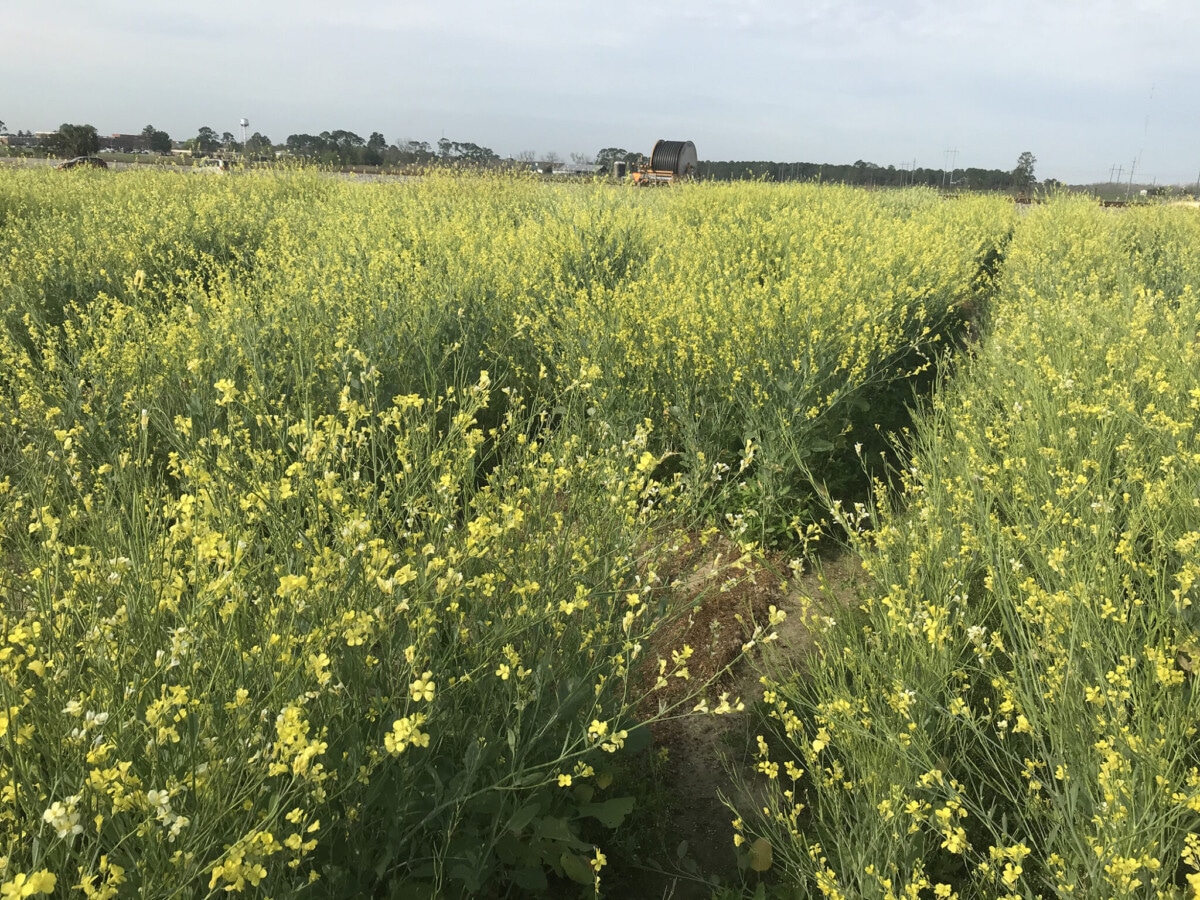
The aviation industry is still far too polluting. But scientists are proposing a – literally – ‘green’ alternative.
Most planes are still powered by polluting petroleum. But with a view to the future, that cannot always be the case. Such fossil fuels not only run out, during combustion they release greenhouse gases that are harmful to the environment. In a new study however, researchers are proposing a ‘green’ alternative. Literal.
mustard plant
The researchers discovered that a special mustard plant called Ethiopian mustard (Brassica carinata) can serve as jet fuel. Research has shown that the oil obtained from Ethiopian mustard could power the jet engines of aircraft. Incidentally, the plant is not only a very sustainable alternative to polluting kerosene, it can even reduce emissions from the aviation industry by as much as 68 percent.

A field full of flowering Ethiopian mustard.
It is urgent that something is done about the emissions of the aviation industry. For example, civil aviation is currently responsible for 2 to 3 percent of global CO2 emissions. These emissions in turn contribute to global warming. And so there is a lot to gain here.
United States
One country that is already taking measures to limit aviation emissions is the United States. The researchers hope to be the first to implement their green alternative in America. “If we can secure the supply of raw materials and provide appropriate economic incentives in the supply chain, we may be able to produce carinata-based jet fuel in the southern United States,” explains study leader Puneet Dwivedi. “Aircraft fuel made from the mustard plant could then help to reduce the carbon footprint of the aviation sector, while at the same time creating economic opportunities.”
winter crop
An added benefit is that Ethiopian mustard can be grown as a winter crop in the southern United States. “The winters here are not that severe compared to other regions in the country,” says Dwivedi. “Since the mustard plant is produced in the off-season in this case, it does not compete with other food crops. In addition, growing carinata offers all the benefits in terms of soil cover, water quality, biodiversity and pollination.”
Cheap
By the way, Ethiopian mustard is not only a sustainable alternative, it can also be cheaper than petroleum-based jet fuel. The price for producing the biofuel currently varies between ten euro cents to 1.11 euro per litre, while the production of petroleum costs about 0.43 euro cent per litre. But subsidies and tax cuts could further reduce costs, making the mustard plant as a substitute for petroleum also financially attractive.
While all of this sounds very rosy, there is one problem: at the moment there is still a lack of local infrastructure for grinding the seed and processing the oil into jet fuel. This means that at the moment they are not yet ready to actually turn the crop into a fuel. An important next step is therefore to find out how feasible it is and how it can be designed. “I look forward to doing more research to provide a sustainable alternative to our current aviation,” says Dwivedi. “And carinata may offer a win-win situation, both for our rural areas, the aviation industry and most importantly: climate change.”
Source material:
“Plant-based jet fuel could reduce emissions by 68%” – University of Georgia
Image at the top of this article: Matheus Cenali via Pexels